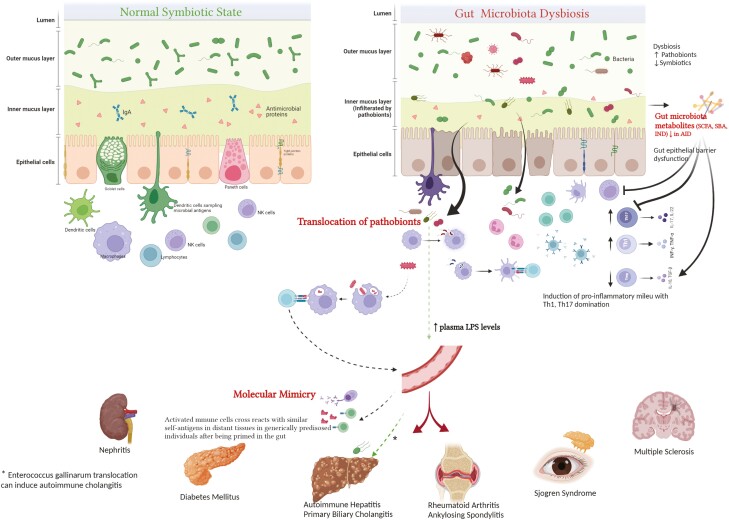Figure 1:
gut microbiome and autoimmune diseases (potential mechanisms). Perturbed gut microbiota can contribute to the development of autoimmune diseases through several proposed , including translocation of pathobionts and their proinflammatory products as lipopolysaccharides (LPS), molecular mimicry, which entails similarity between bacterial antigens and self-antigens in genetically predisposed individuals, and disordered metabolome (which normally helps contain inflammatory pathways in healthy state). Normally, different microbiota metabolites (SCFA in particular) can induce expansion of the immunoregulatory T-helper cells (T-Reg), innate lymphoid cells (ILC-3) and their immunoregulatory cytokines (IL-10, 22) while blocking proinflammatory pathways mediated by Th-17. Patients with autoimmune diseases (AID) usually exhibit gut epithelial barrier dysfunction with increased permeability facilitating bacterial translocation.

